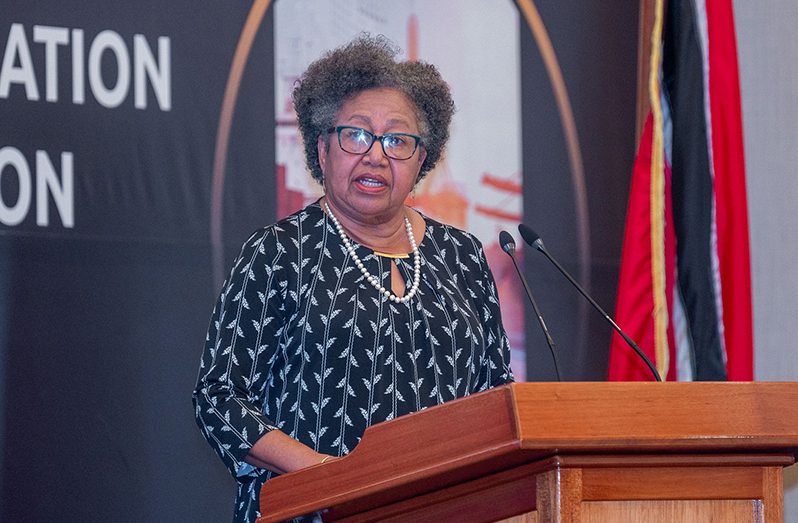–CARICOM Secretary-General says
TO ensure that the Caribbean Region remains on its developmental trajectory, it is imperative that there is urgent action to achieve energy security and climate resilience.
This was according to Secretary-General of the Caribbean Community Dr Carla Barnett during her address at the opening ceremony of the Guyana Energy Conference and Supply Chain Expo, on Monday.
According to Dr Barnett, energy plays a critical role in development, and enhancing and fostering economic stability. However, she added that the region faces significant challenges in relation to energy security.
Some of these challenges, she said, include fragile electricity grids, the heavy reliance on imported oil and its rising costs, which have been exacerbated by increasing geopolitical challenges.
“Despite these challenges or perhaps because of these challenges, CARICOM member states have made strides in pursuing sustainable-energy solutions as a matter of policy,” Barnett said.
Against this backdrop, she said that progress has been made in key sectors such as power generation, transport and infrastructure.
Dr Barnett noted that it is projected that by 2025, the region will have transitioned from 19 per cent electrification to 51 per cent, thus underscoring the commitment to equitable and accelerated transition that safeguards the planet for future generations.
Additionally, she said that CARICOM is actively working towards a more sustainable and resilient-energy future by accelerating the deployment of renewable-energy resources and fostering partnerships among member states.
“The increasing production of hydrocarbons in Guyana, Suriname and Trinidad and Tobago presents opportunities to enhance energy security; it also presents opportunities for increased private and public investments in building social, economic, environmental and climate resilience as the world transitions towards clean and renewable sources of energy,” Dr Barnett said.
Further, she added that as a whole, CARICOM is committed to a development trajectory that prioritises zero emissions in full recognition that the region does not contribute in any significant way to climate change, even as it contends with the significant impact of climate change.
The Secretary-General noted that while each country has its unique challenges and priorities, regional cooperation on energy leverages the sharing and exchanging of critical information and experiences which she said are vital to success at the national level.
She said: “Urgent action is imperative to ensure energy security and climate resilience as without these the region’s development trajectory is at risk. CARICOM will, therefore, continue to enhance cooperation among member states through policy harmonisation, regulatory reforms and capacity-building initiatives.”
This transition, she highlighted, is essential to secure energy security and mitigate the impact of climate change, while fostering economic growth and development in the region.



.jpg)








